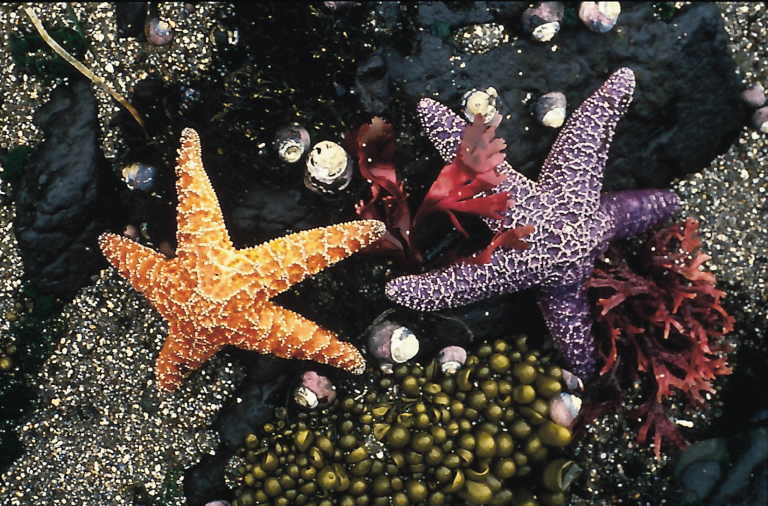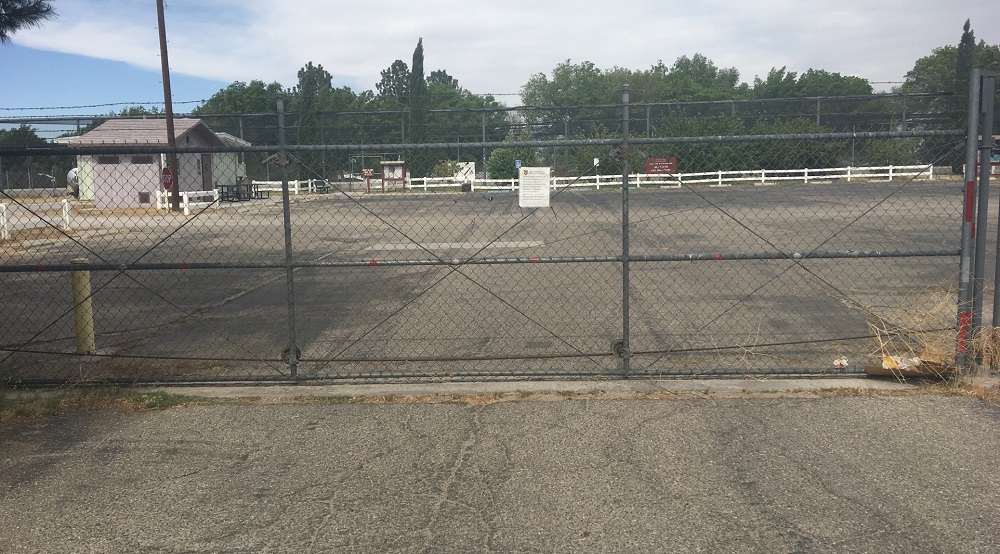Fish Report for 5-4-2017
What Can Be Collected from Ocean Beaches?

by Carrie Wilson
5-4-2017
Website
Question: I am an artist and my medium is to work with natural items I find in nature. I was wondering if I am allowed to take items from the beaches near my home. I see people collecting many things but I know that the beaches are protected and I don’t want to take anything that is forbidden. I am particularly interested in the seaweed and colorful algae that washes up after storms. There are also items such as sponges, tree fans, dead crabs, even little animal skulls, and of course drift wood. I would really love to know if I am allowed to collect anything so as not to disrupt the natural process of things. Any information you could offer would really be great. (Aggie M.)
Answer: Aside from state parks and marine protected areas that prohibit take/collecting marine life within their boundaries; there is no law against collecting beach wrack for personal use. Shells that have been discarded by their occupants may be taken as long as you’re doing so in an area where collecting is not prohibited by the governing agency. Wherever you go, you should contact the governing agency to find out what collecting activities are legal for that area. As long as the shells are legally obtained and not sport-taken, they can be used to make art and or jewelry that is sold.
Marine protected area information is available online. Notice that some areas do not allow any “take.” You will find information on this page regarding the areas you may want to avoid.
As far as animal skulls, sea otters and all other marine mammal skulls may not be collected or possessed unless specifically authorized through the federal government (NOAA). If you are selling your artwork, Fish and Game Code, section 3039 generally prohibits selling any parts of a bird or mammal found in the wild in California.
Go ID required on buoys when crab fishing from a pier/dock?
Question: The 2016-2017 Dungeness crab fishing regulations say you have to have a buoy on your crab pot with your GO ID number. Does this requirement apply when you are crabbing off a pier or dock, too? (Judy and John F.)
Answer: Yes, if you already have a fishing license when fishing off a pier or jetty (even where no license is required), then you must fish with buoys marked with your GO ID. It’s OK to use a small net float/buoy instead of a full size buoy if you’d prefer. According to the California Code of Regulations Title 14, section 29.80(c)(3), every recreational “crab trap” except those used by a Commercial Passenger Fishing Vessel (CPFV) “shall be marked with a buoy” with the operator’s GO ID on it. One exception to the GO ID requirement in this scenario would be if the person fishing from a public pier or jetty was not required to have a fishing license and therefore has no GO ID. The trap would still need a buoy attached, but would not need to be marked. Anyone can get a GO ID, even if they have no fishing license or are under age 16. Instructions for getting a GO ID are available on our website.
Baiting turkeys with water?
Question: I have a friend who bow hunts for turkeys and puts a tub of water near his turkey blind. He also places small water tanks in brush areas during deer season and says it’s ok. Is this true? Is it legal to use water as bait? (Dennis B., Palmdale)
Answer: This activity is prohibited on some public lands (CCR Title 14, section 730). This section prohibits hunting for more than 30 minutes within 200 yards of wildlife watering places on public land within the boundary of the California Desert Conservation Area or within ¼ mile of six specified wildlife watering places in Lassen and Modoc Counties. The definition of “watering place” includes man-made watering devices for wildlife. Otherwise, as long as the person has permission from the land owner or controlling agency to place these water tubs on their property, there should be no issue
Do licensed fishing guides also need a fishing license?
Question: Is a California licensed fishing guide required to also have an individual sport fishing license? (Tom H.)
Answer: If the guide is just driving the boat and only verbally guiding clients while they fish, then no. However, if the guide does any fishing themselves, then a sport fishing license is also required.
Carrie Wilson is a marine environmental scientist with the California Department of Fish and Wildlife. While she cannot personally answer everyone’s questions, she will select a few to answer each week in this column. Please contact her at [email protected].
< Previous Report Next Report >
< Previous Report Next Report >
More Reports
Coast Guard continues to monitor sunken barge near Bay Bridge
San Francisco Bay
5-2-2017
A unified command comprised of the U.S. Coast Guard, California Department of Fish and Wildlife’s Office of Spill Prevention and...... Read More
Mojave River Hatchery to temporarily close to the public
Mojave Narrows Park Lake
4-30-2017
The Mojave River Hatchery near Victorville in San Bernardino County will be closed to the public as of May 1,...... Read More

Website Hosting and Design provided by TECK.net